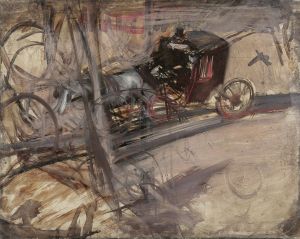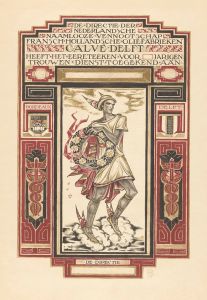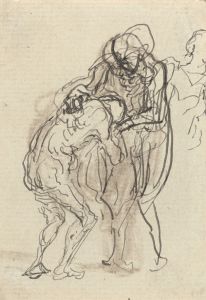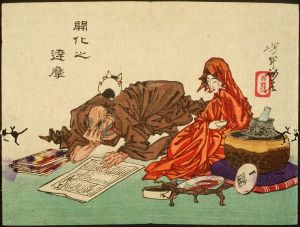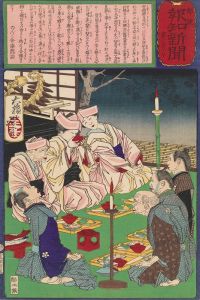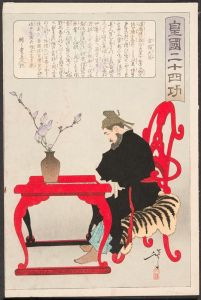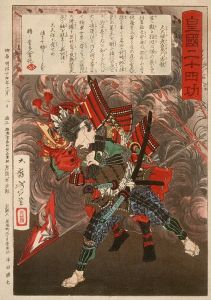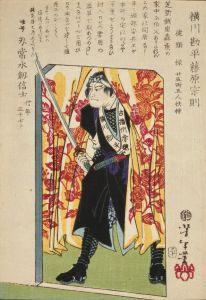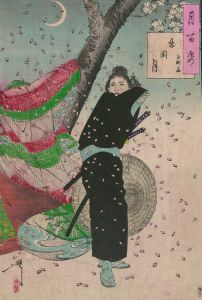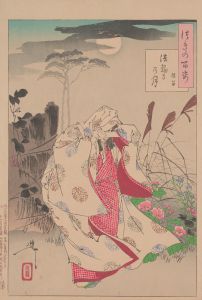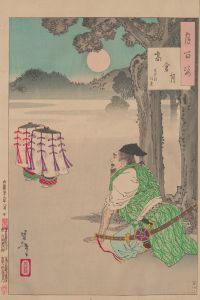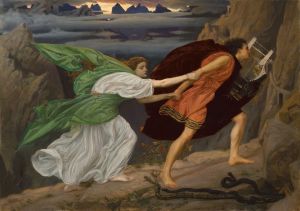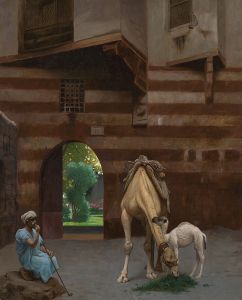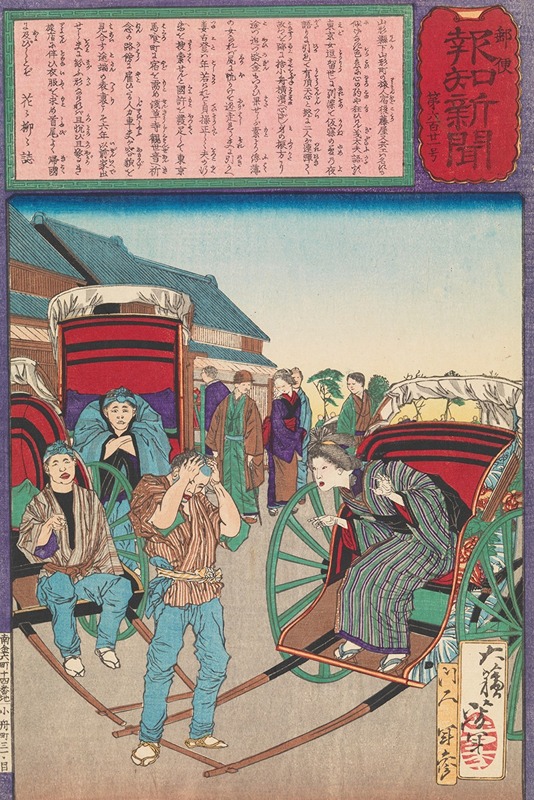
The Loyal Wife Koto Recognizes Her Long-Lost Husband as a Rickshaw Driver
A hand-painted replica of Tsukioka Yoshitoshi’s masterpiece The Loyal Wife Koto Recognizes Her Long-Lost Husband as a Rickshaw Driver, meticulously crafted by professional artists to capture the true essence of the original. Each piece is created with museum-quality canvas and rare mineral pigments, carefully painted by experienced artists with delicate brushstrokes and rich, layered colors to perfectly recreate the texture of the original artwork. Unlike machine-printed reproductions, this hand-painted version brings the painting to life, infused with the artist’s emotions and skill in every stroke. Whether for personal collection or home decoration, it instantly elevates the artistic atmosphere of any space.
"The Loyal Wife Koto Recognizes Her Long-Lost Husband as a Rickshaw Driver" is a woodblock print by the renowned Japanese artist Tsukioka Yoshitoshi, who was active during the late Edo and early Meiji periods. Yoshitoshi is celebrated for his innovative approach to traditional ukiyo-e art, and his works often explore themes of loyalty, heroism, and the supernatural, reflecting the cultural transitions of Japan during his lifetime.
This particular print is part of Yoshitoshi's series "Tsuki hyakushi" (One Hundred Aspects of the Moon), which he produced between 1885 and 1892. The series is considered one of Yoshitoshi's masterpieces, showcasing his mature style and his ability to blend traditional Japanese aesthetics with Western influences. Each print in the series features a scene inspired by literature, history, or legend, all unified by the motif of the moon.
"The Loyal Wife Koto Recognizes Her Long-Lost Husband as a Rickshaw Driver" depicts a poignant moment of recognition and reunion. The story behind the image is rooted in Japanese folklore and highlights themes of devotion and perseverance. In the scene, Koto, the loyal wife, encounters her husband, whom she believed to be lost, working as a rickshaw driver. The emotional intensity of the moment is captured through Yoshitoshi's masterful use of composition, color, and expression.
Yoshitoshi's work is characterized by its dynamic compositions and the expressive use of line and color. In this print, he employs a delicate balance of detail and simplicity, allowing the emotional narrative to take center stage. The figures are rendered with a sensitivity that conveys the depth of their emotions, while the background and setting are depicted with a subtlety that enhances the overall mood of the piece.
The "Tsuki hyakushi" series, and this print in particular, reflect Yoshitoshi's interest in the human condition and his ability to convey complex emotions through visual storytelling. His work is noted for its psychological depth and its ability to capture the nuances of human experience, making it resonate with audiences both in his time and today.
Yoshitoshi's prints, including "The Loyal Wife Koto Recognizes Her Long-Lost Husband as a Rickshaw Driver," are highly regarded for their artistic merit and historical significance. They offer insight into the cultural and social changes occurring in Japan during the Meiji era, as well as the enduring power of traditional stories and themes. Through his art, Yoshitoshi has left a lasting legacy, influencing both his contemporaries and future generations of artists.





